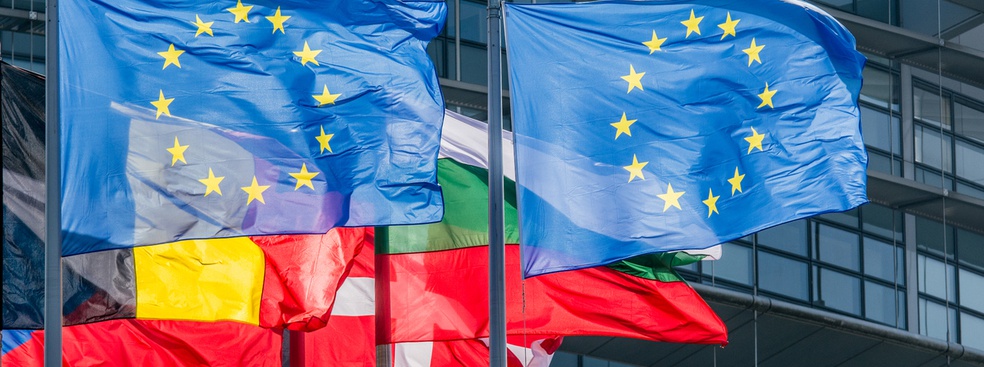It all happened on a Thursday, back in June 2016. The United Kingdom voted to leave the European Union after a historic referendum in which the people rejected the advice of the main Westminster party leaders and instead took a plunge into the political unknown.
Even though the “leave” campaign focused on “emotional arguments” about immigration, there were many (more) reasons that pushed Brexit supporters to believe that such a divorce would benefit the UK. Most of the arguments advanced were not new. Among them could be found the following arguments: “the EU threatens British sovereignty” and the EU entrenches corporate interest and prevents radical reforms”. Part of the Brexit camp blamed the EU for impeding the signature of new trade agreements. According to them, the UK should be free to negotiate and set the course of its trade policy.
Therefore, when Economics Professor Giuseppe Berlingieri decides to look closely at the impact of trade agreements - implemented by the EU between 1993 and 2013 - on consumer welfare, it is only fair to pose the following question “Were British consumers, hence Brexit supporters, right to think that these trade agreements did not serve the UK economy well enough? Were they right to think that they would be better off on their own?”
Background
Over the past two decades, there has been a surge in the number of trade agreements. Economists have studied the economic consequences of these agreements focusing on their impact, on variables such as trade flows, productivity, firm exit, and entry, employment, and wages. One area that has been somewhat neglected by recent research is the impact of trade agreements on customers.
Lowering trade barriers increases welfare
A central tenet of trade theory is that lowering trade barriers increases welfare. Trade agreements between countries lower trade barriers on imported goods and according to theory, they should provide welfare gains to consumers from increases in variety, access to better quality products and lower prices. Although a large literature estimates the overall gains from trade, less is known about the effects of specific trade agreements and the channels through which they increase welfare.
Measuring the consumer impact
In light of recent public and political opposition to new agreements such as the EU-Canada Comprehensive Economic and Trade agreement or the Transatlantic Trade and Investment Partnership, it is important to understand how past trade agreements have affected consumers. And for that, the EU provides an interesting case study as it is the biggest trading block in the world and has been a prolific negotiator of trade agreements over the past two decades.
How does it work?
Let us take the following example observed by Berlingieri and his fellow co-researchers. Suppose we have 21-inch LCD Televisions imported from Korea into the EU12 (i.e. before the 1995 enlargement). And they have the same price as those imported from Japan. But Japan’s market share is 20% and Korea’s 10%. Then, the quality estimate for Japan will be higher. If the price of Japanese LCD TVs is higher, we would need to control for the price difference which would reduce the quality estimate for Japan.
Naturally, there’s more than just quality to be taken into account. In order to measure the impact of trade agreements, Berlingieri and his fellow co-workers measured prices, quality, and variety and evaluated how these have changed after the implementation of trade agreements. They then compared the evolution of the three variables for the group that has signed trade agreements with the EU with a control group of countries that has not.
Do we benefit from EU trade agreements?
Berlingieri and his colleagues observed that the EU’s trade agreements increase quality (by around 7% over a five-year period) but that they do not have much impact on prices and variety. These results highlight the importance of taking quality into account.
A naive approach, he says, that only looks at the impact of trade agreement on (non-quality) adjusted prices might erroneously conclude that trade agreements have no impact on consumers. At least for the trade agreements implemented by the EU, the entire effect works through changes in quality. Therefore, once prices for quality are adjusted, one can observe that trade agreements lowered them by close to 7%.
Another important takeaway from their research paper: higher-income EU countries (Belgium, Luxembourg, Ireland, the Netherlands, the UK) saw much stronger increases in quality than other EU countries. For lower-income EU countries (Greece, Portugal and Spain) the impact worked almost exclusively through a reduction in prices rather than increased quality.
Their approach does not allow them to identify the exact sources of these quality improvements. However, they discuss potential mechanisms. One plausible explanation is that foreign exporters upgrade quality in preparation for serving the EU market after the implementation of trade agreements.
And in comparing the consumer price index (CPI) in two different scenarios - the EU has signed trade agreements and the EU has not signed any trade agreements - allows them to answer the question by how much poorer EU12 consumers would have been in real terms without the agreement-based trade. Although the effect is not very large - 55% to the direct effect on the prices and quality of imported products; the remaining 45% is due to reductions in the quality-adjusted price of imports of intermediate inputs, which lowers the prices of domestic goods - it still amounts to substantial savings for EU consumers of around €24 billion per year.
Let us now go back to our Brexiteers. We can see that it is not all doom and gloom after all. Thanks to the European Union, trade agreements were beneficial to UK consumers: imported goods increased together with their quality. It may be true that negotiations and trade agreements handled by the EU are complex. This being said, it is also true that the EU has been a prolific negotiator over the past few decades. And it turns out that the UK has benefited the most out of this trade policy. Would the UK be better off if it could negotiate its own trade agreements? For that to happen the UK would need to leave the single market, i.e. leave the largest free trade area on its doorstep but also, and this is where the plot thickens, lose access to all trade agreements signed by the EU over the past years; trade agreements that turn out to have been beneficial for UK consumers. On top of that, if the UK chooses to exit the bloc, it will have to face the problem of rules of origin*. Most trade agreements require that 55% of the value be produced locally. For products with complex supply chain such as cars the UK would find it difficult to prove that they were made in Britain, therefore, they would and could not be covered by the new trade agreements signed independently by the UK. What relationship will the UK have with the EU after Brexit? Just a few weeks ago MPs were deciding whether the UK should stay part of the European Economic Area after it leaves the EU - a similar arrangement to non-EU countries Norway, Iceland, and Liechtenstein. Yet again, the answer was “no”. MPs voted by 327 to 126 against. This story remains to be written*.
–––
*https://www.cer.eu/insights/brexit-and-rules-origin-why-free-trade-agreements-%E2%89%A0-free-trade
*https://www.bbc.com/news/uk-politics-44474661









